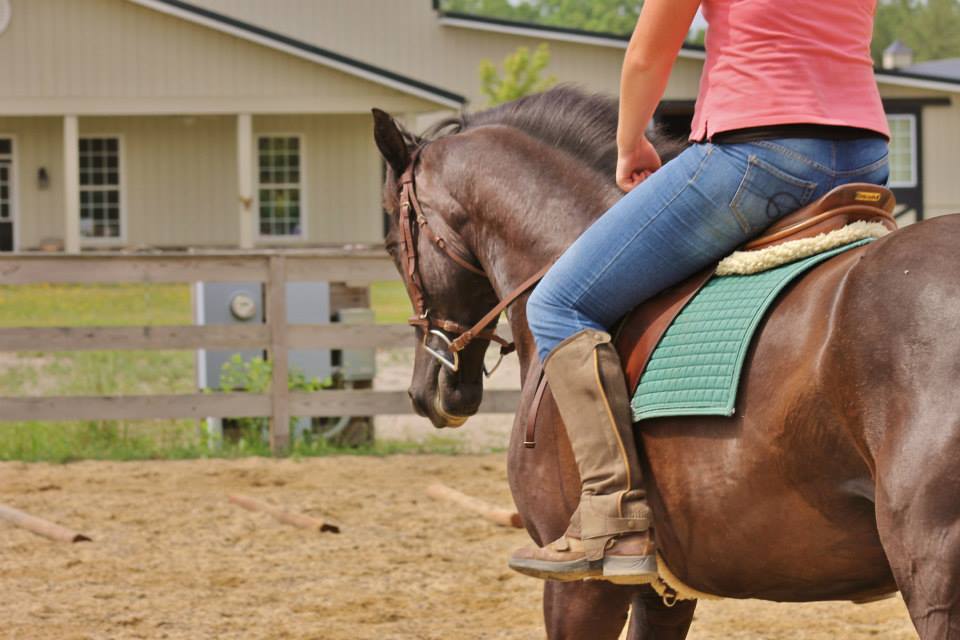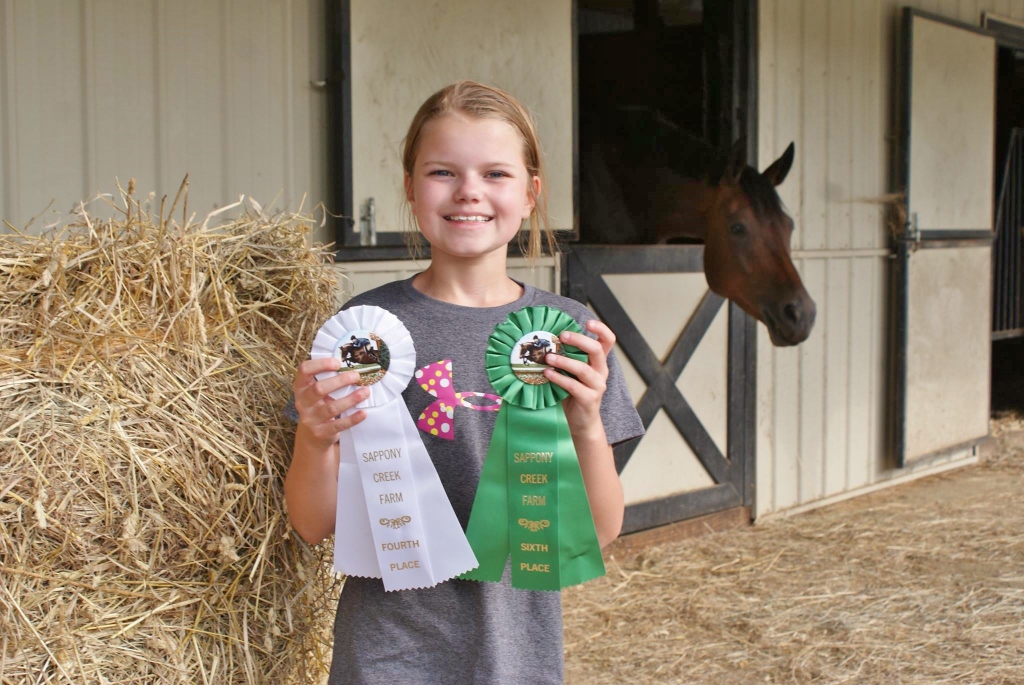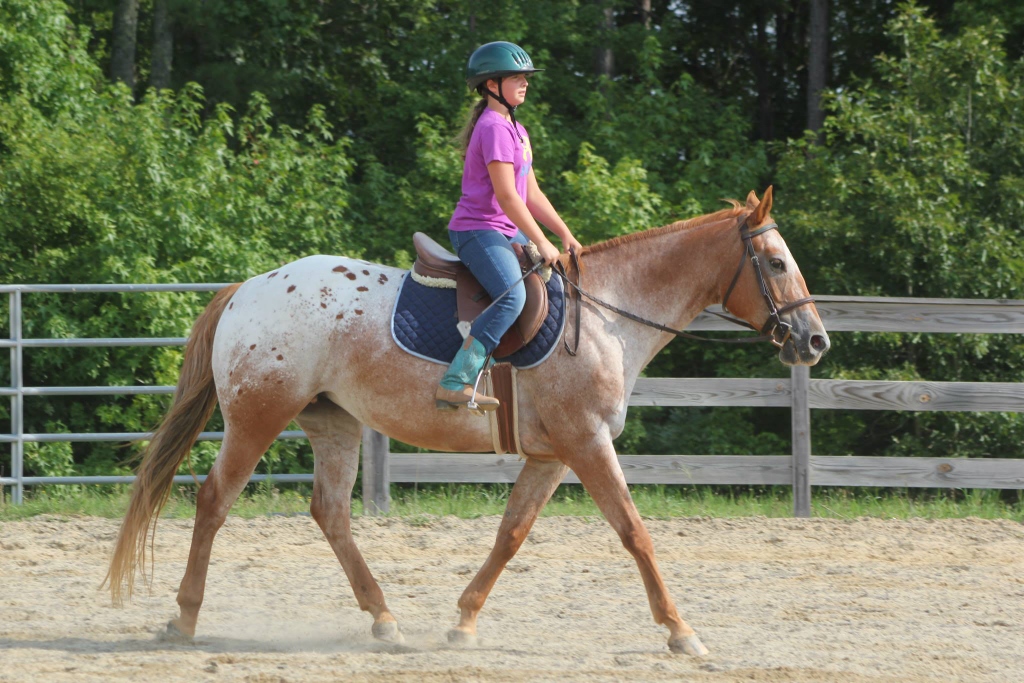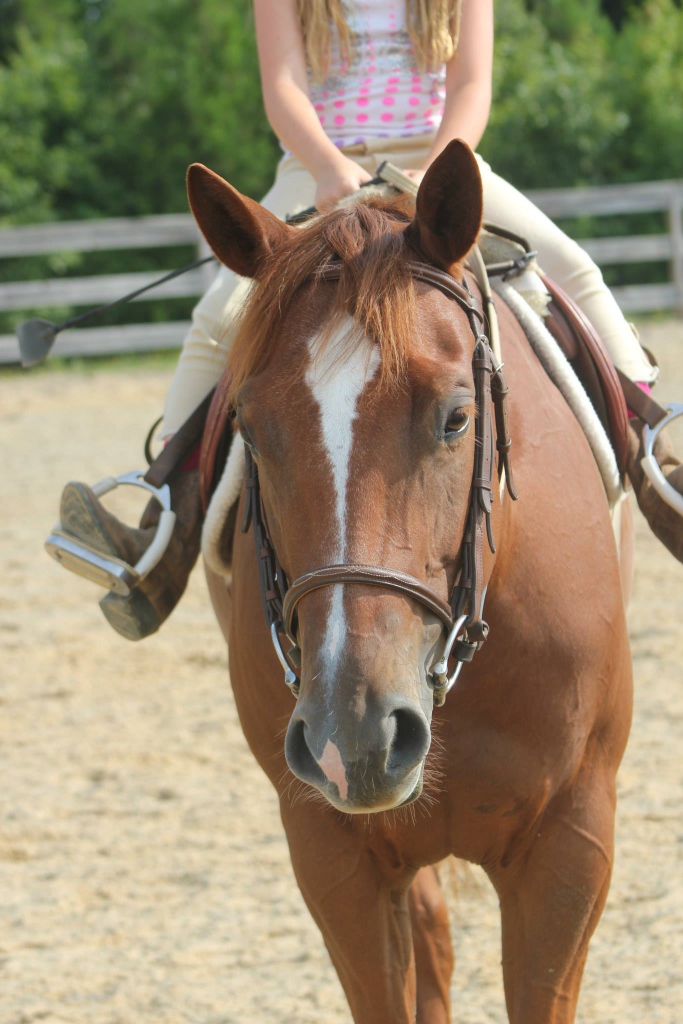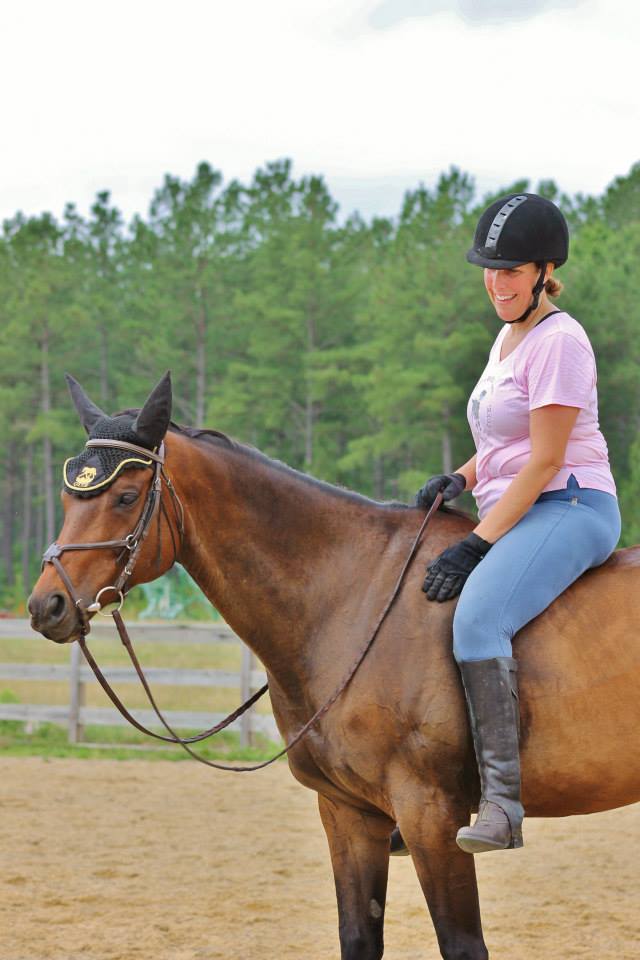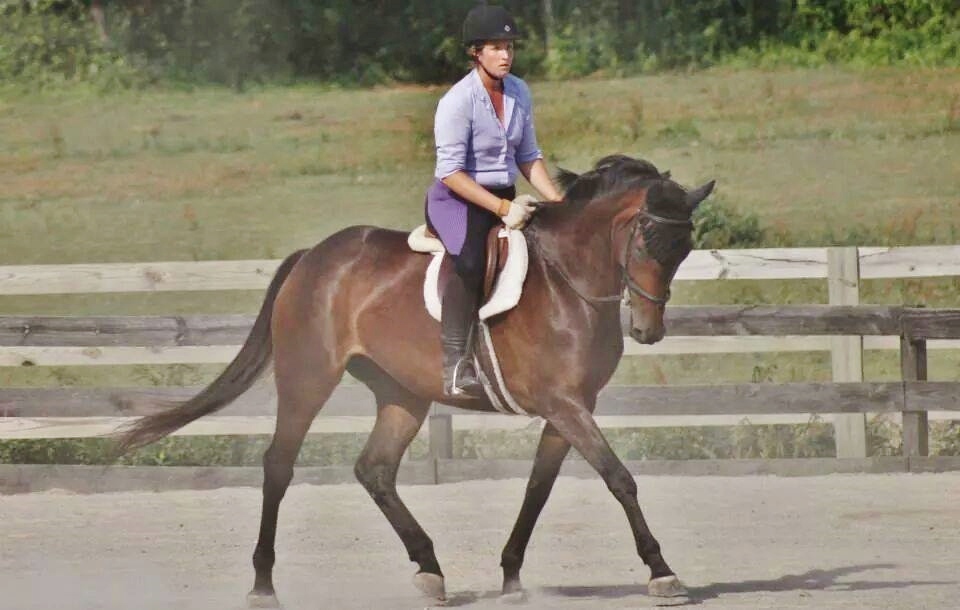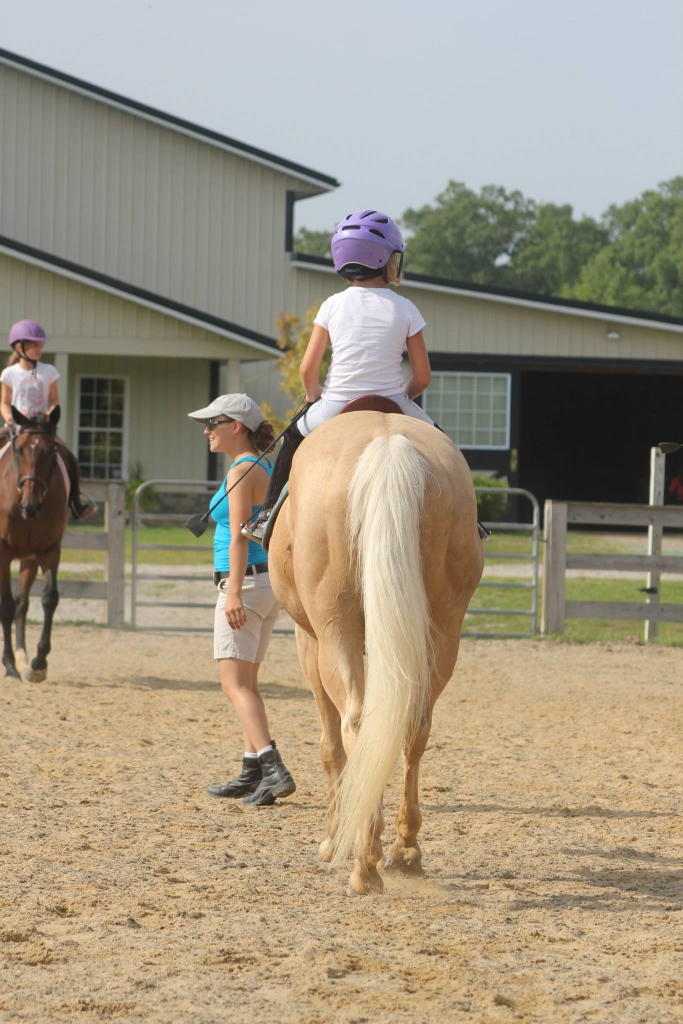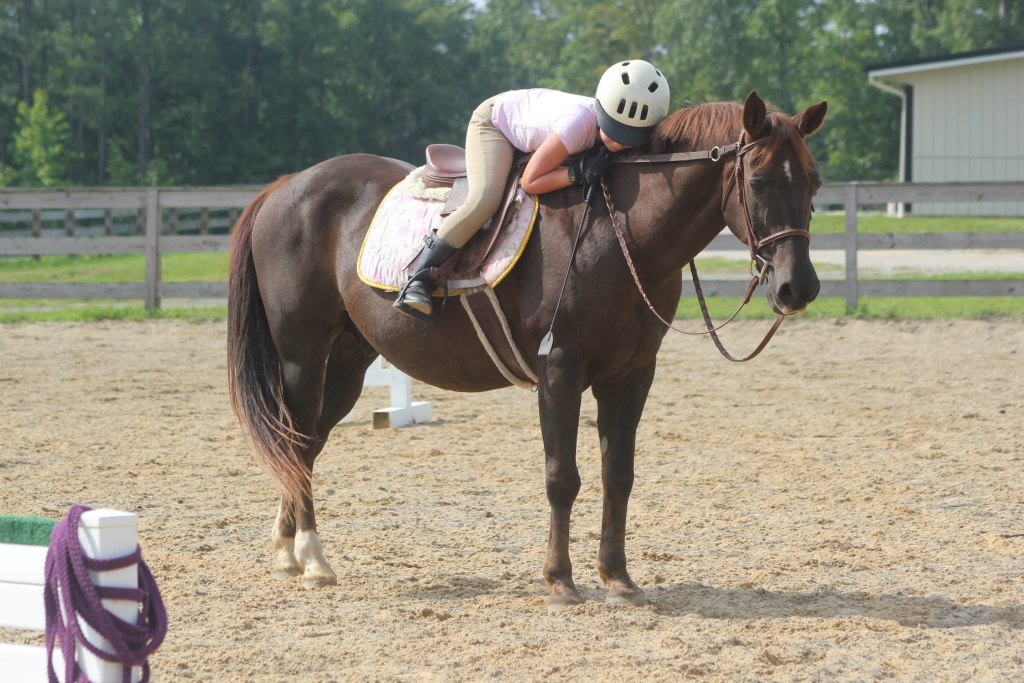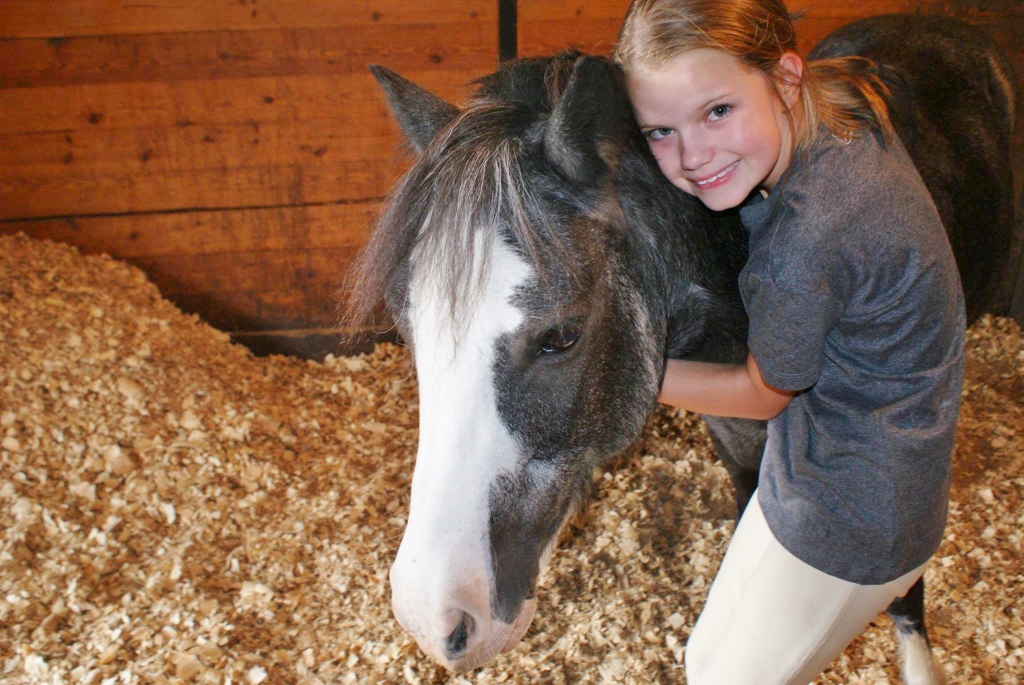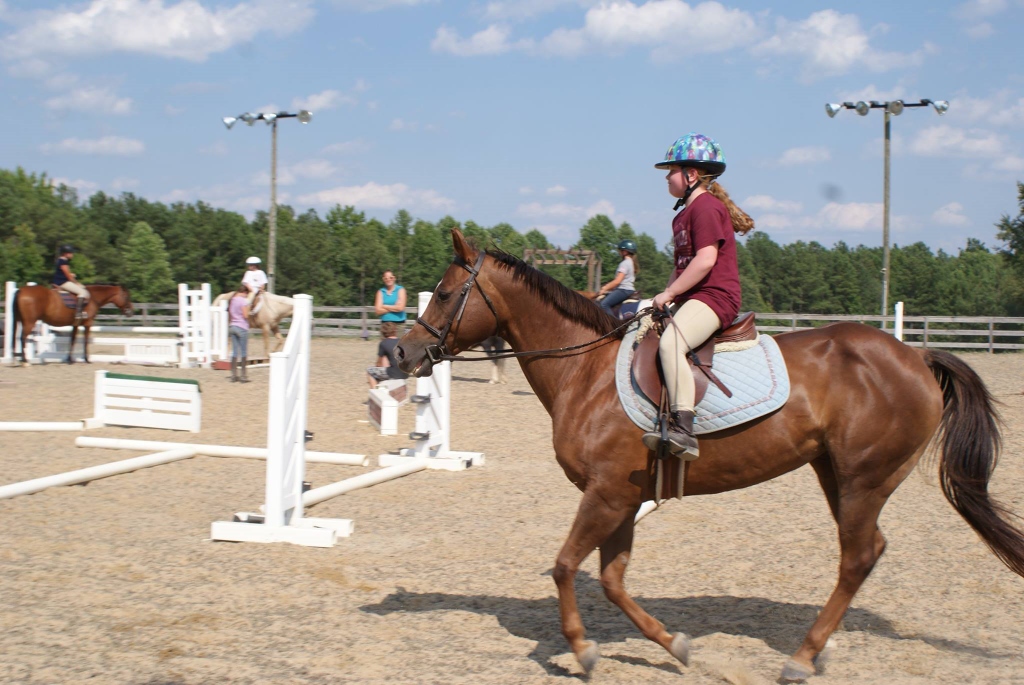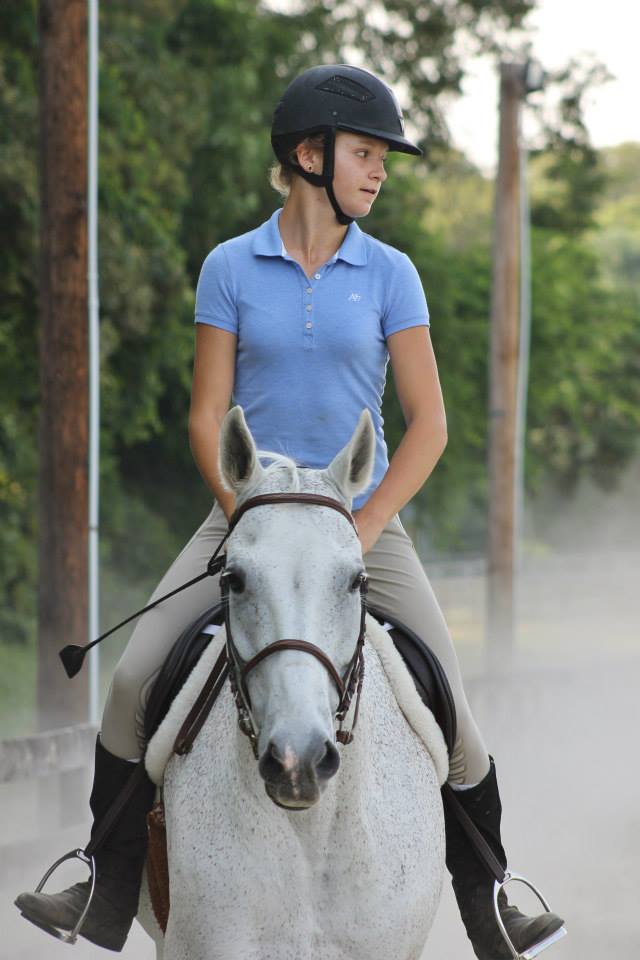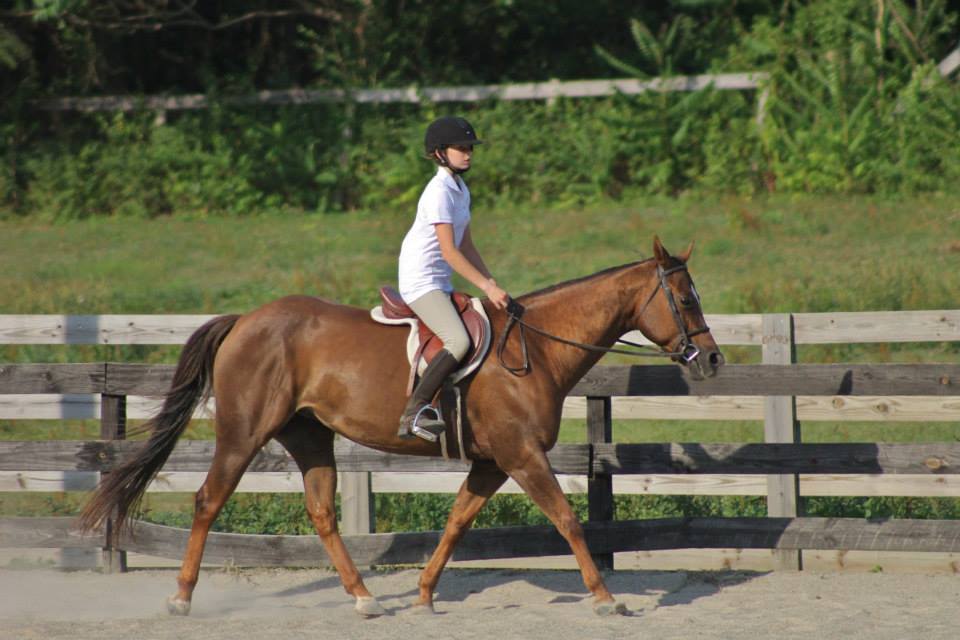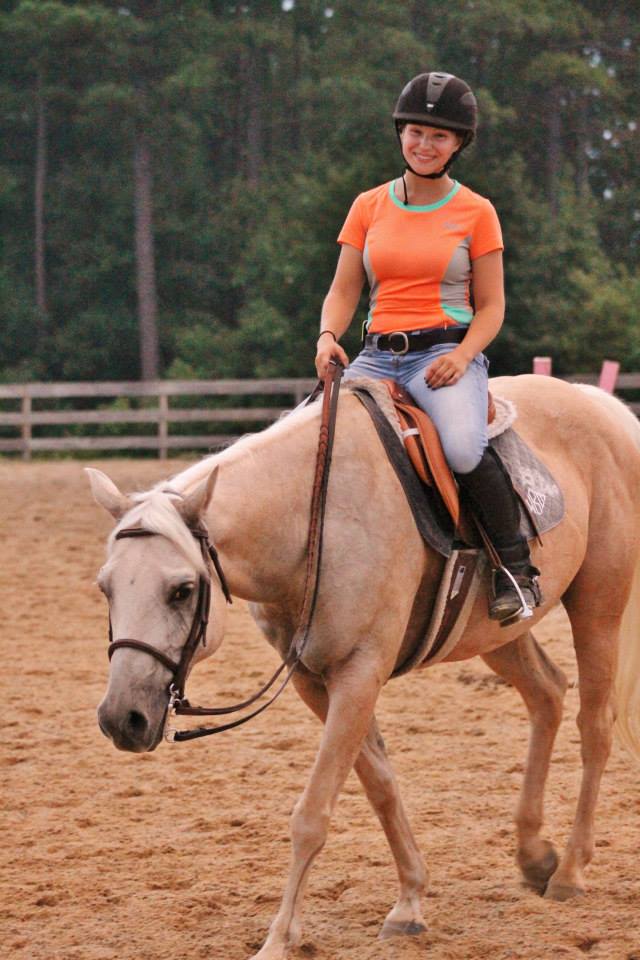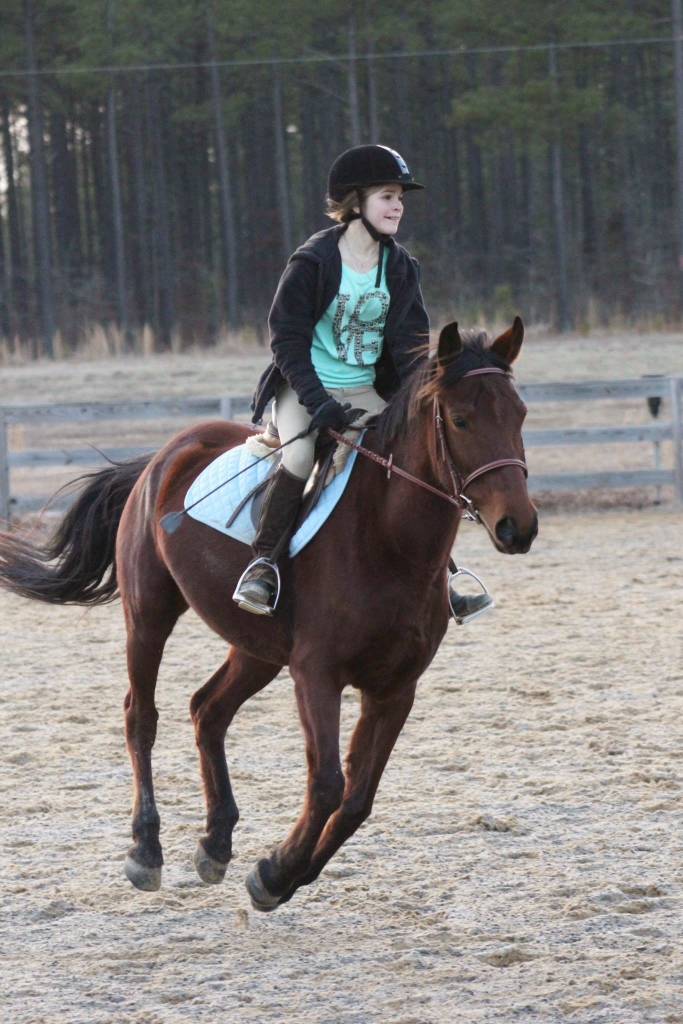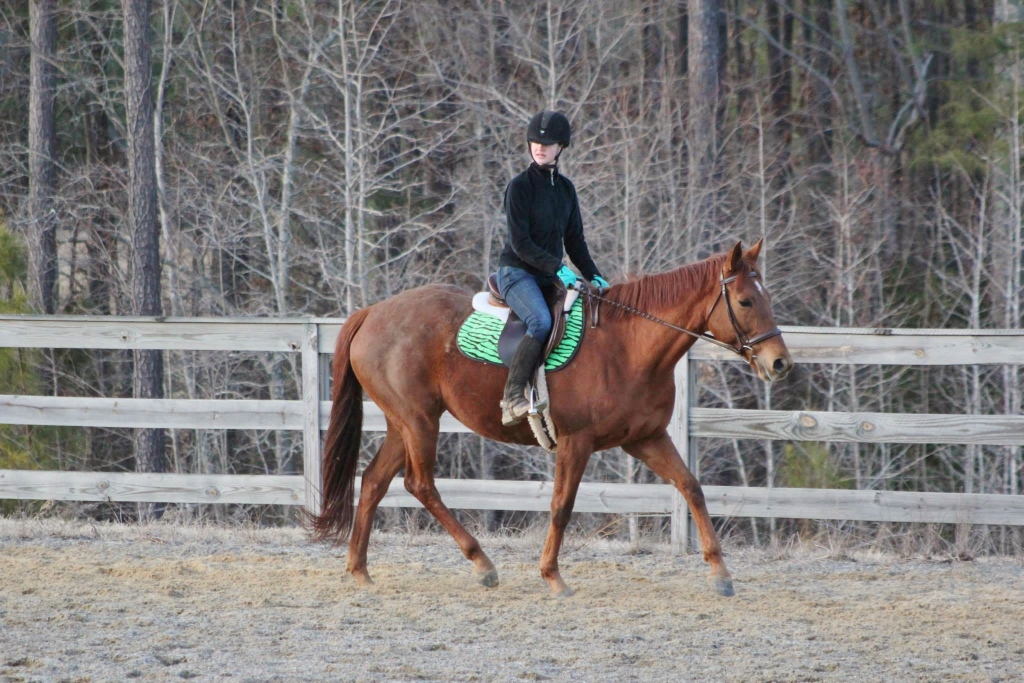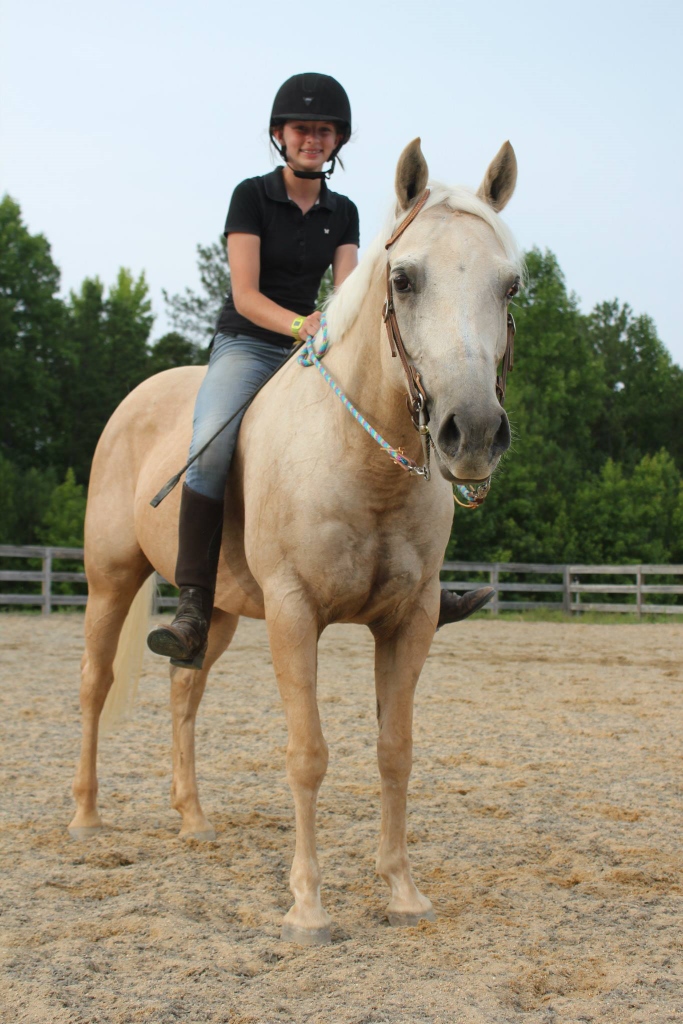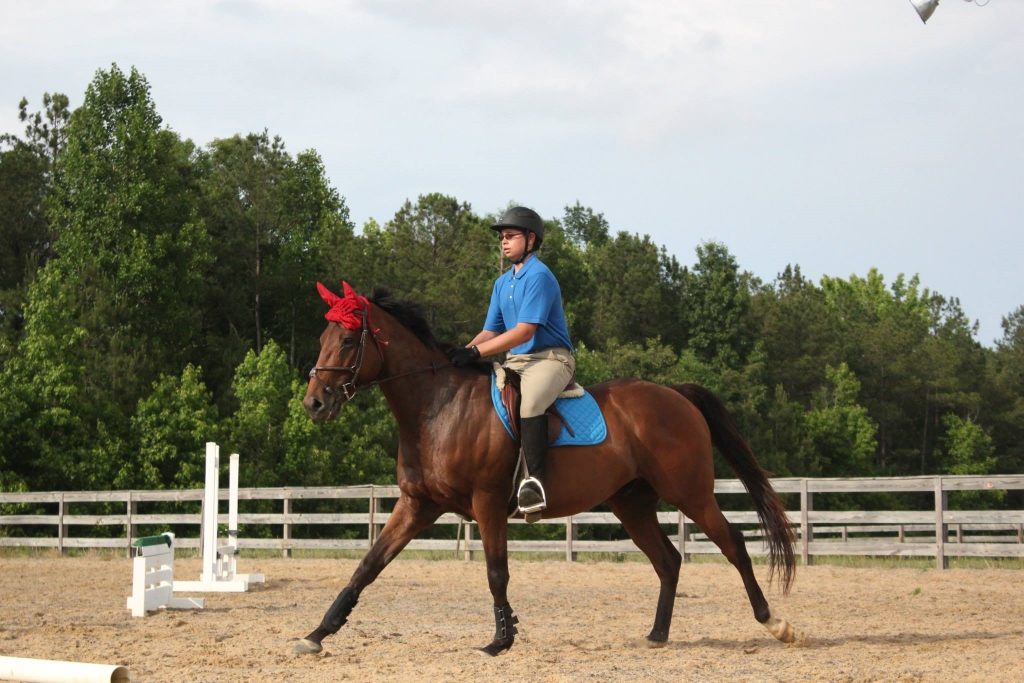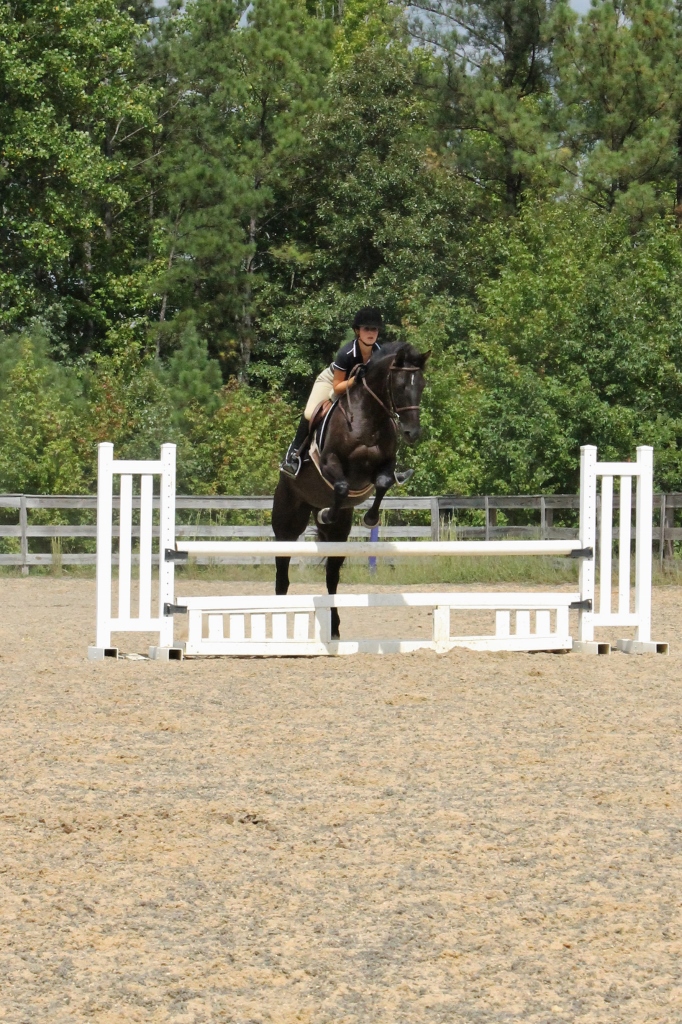Owned and managed by Amelia County native Caitlin Ashton, the operation is housed at the Sappony Creek Farm property in Chesterfield. Students and boarders at the facility enjoy riding and training in an indoor arena, an outdoor ring, and plenty of nearby trails.
Virginia is home to approximately 215,000 horses valued at $1.2 billion and about 41,000 horse operations which each specialize in services ranging from breeding and boarding to training and trail rides. Zephyr’s Way Stable’s focus is horseback riding lessons for children and adults, and the farm has grown and diversified to include summer camps, trail rides, boarding, and leasing.
Today, the barn’s instructors and staff are busy teaching lessons on most days of the week. However, as is done with any new agricultural enterprise which relies on direct business with customers, Caitlin Ashton built her client base from the ground up when she started the operation in May of 2009. At that time, her focus was training and sales and she spent much of her time starting horses under saddle to prepare them for clients.
However, she saw a greater opportunity for long-term business viability in lessons and began to engage with more customers through her website and online marketing tools. “Groupon and Living Social have been great advertisement for us. We have also used local companies like Flier for Hire, radio advertisement, and word of mouth,” she says. Because different customers have goals varying from becoming more active to learning to compete in shows, Caitlin has benefitted from offering an array of horses, instructors, and disciplines to her clients. “We try to be diverse in what we offer so that we can attract a larger number of students. We have flexible lesson times with trainers of different disciplines. We also have horses for small children, all the way up to adults,” she notes.
Working in the field she loves had its initial challenges, particularly in the realm of finances. “I had to start off small and work my way up. Everything about horses is expensive and it takes a tremendous amount of extra work, quick thinking, time management, and marketing skills to make this work!” she says. As the owner and operator, the ball was in her court for most of the initial labor. “My typical day used to be wake up, feed, clean the barn, teach lessons, return phone calls in between lessons, feed, turn horses back out, and go to sleep,” she says.
Now that the business has grown, she has been able to hire labor and focus her time on paperwork, marketing, and other crucial details. More time for management also means more time for her to step back, enjoy what she has built, and appreciate the progress her clients have made. “Horses are very relaxing to be around in general, and it’s great to see the transformation that they can make in other people as well,” she says. Since Caitlin broke, trained, and finished most of the twenty horses that are used today for lessons at the barn, she also enjoys watching each horse build strengths in a certain discipline area. Throughout the summer, she takes some of her horses to local shows so that her students of all skill levels can ride and compete.
Some of her students participate in 4-H clubs and compete with fellow 4-H members in shows. Caitlin herself grew up in the 4-H horse program in Amelia. She recalls participating in clinics, shows, and horse judging teams, all of which helped set the tone for her career path. She remains supportive of educational industry, 4-H, and Extension programs. In fact, last July she hosted a hay quality workshop at the barn taught by local agricultural Extension agents.
Although the horse industry may not always have the look and feel of traditional agriculture, it is a strong contributor to Virginia’s agricultural sector and many horse farms undergo challenges typical of any farm operation. Lesson and boarding barns like Zephyr’s Way Stable experience the client acquisition and product diversification challenges that agritourism and direct-marketing farm enterprises face, but they also experience labor, land management, and animal management challenges that would match those seen on any livestock operation.
Despite this unique set of challenges, Caitlin believes that people with a similar passion can learn to navigate these obstacles in order to run a successful operation. “It’s something that anyone can do if they are willing to put in the time. I’ve worked since I was 14 years old and have had up to three jobs at times. There is nothing wrong with a good work ethic, and it makes you stronger in the end!” she says. “I think most people hope for a career doing what they love. I went into this with the idea that starting and maintaining a business can be stressful, but having a job that meant something to me was worth the extra work.”
Additional Resources for Readers:
Virginia Cooperative Extension horse resources here

